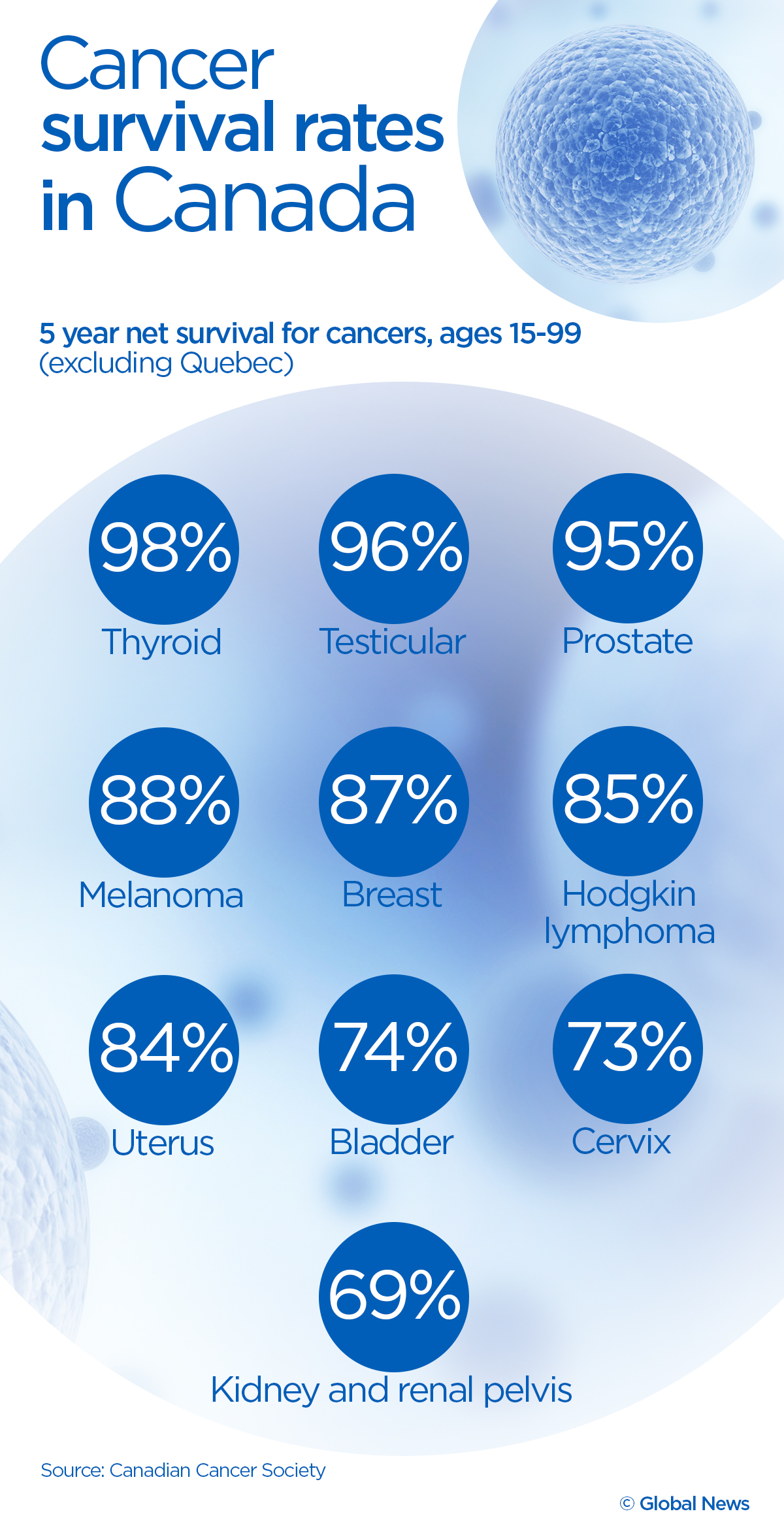Nearly half of all Canadians will develop cancer in their lifetime, according to a recent study by the Canadian Cancer Society.

Although the numbers are staggering, the report also found the chance of surviving cancer is on the rise. In the 1940s, only 25 per cent of Canadians survived their diagnoses, but now that number is 60 per cent.
“The number of people getting cancer is increasing and it reflects our aging population,” Dr. Robert Nuttall, assistant director of health policy with the Canadian Cancer Society said.
“But surviving cancer is going up and less people are dying.”
Thanks to prevention methods, early detection and breakthrough drugs, survival rates for men and women are steadily increasing. Of course, this depends on age, sex and the type of cancer, Nuttall said.
“There are more than 100 types of cancers, and each one of them is treated differently. Some of them have a 90 per cent survival rate while others, like brain cancer, are quite low,” he said.
Five-year survival for cancer is highest for:
- Thyriod (98 per cent)
- Testicular (96 per cent)
- Prostate (95 per cent)

Get weekly health news
Five-year survival for cancer is lowest for:
- High blood pressure drug recalled over low blood pressure pill mix-up
- ‘Doesn’t make sense’: Union files labour complaint over federal 4-day in-office mandate
- Ottawa gives Canada Post a $1.01-billion loan amid ongoing financial struggles
- Ontario Liberals announce date to select new leader, kicking off race
- Pancreatic (8 per cent)
- Esophageal (14 per cent)
- Lung and bronchus (lung) (17 per cent)
Survival by sex
The study found a significant advantage for females surviving cancer compared to males — for most cancers.
For all cancers combined, females had a 13 per cent lower risk of death, which increased to 23 per cent for those diagnosed before the age of 55.
Bladder cancer was the only cancer for which females had a significant disadvantage.
Survival by province
The study showed the highest survival rate for prostate cancer is in Ontario (96 per cent) and the lowest in Manitoba (89 per cent), Saskatchewan (90 per cent) and Prince Edward Island (90 per cent ).
The differences among provinces may be related to the availability and use of screening, early detection and diagnostic services. The use of specialized cancer drugs and improved resources could also be a factor, according to the study.
Although sex, age and geography can play a role in cancer survival, Nuttall said it’s mainly about the different types of cancers.
“Early detection is helping the survival rates for cancers such as cervical and breast. Treatments are also improving,” Nuttall said.
He believes the survival rate is only going to increase in Canada.
“Treatments are improving and an entire generation of cancer treatments are in clinical trials that will make a huge difference in people surviving,” he said.
Read the full Canadian Cancer Society report.











Comments